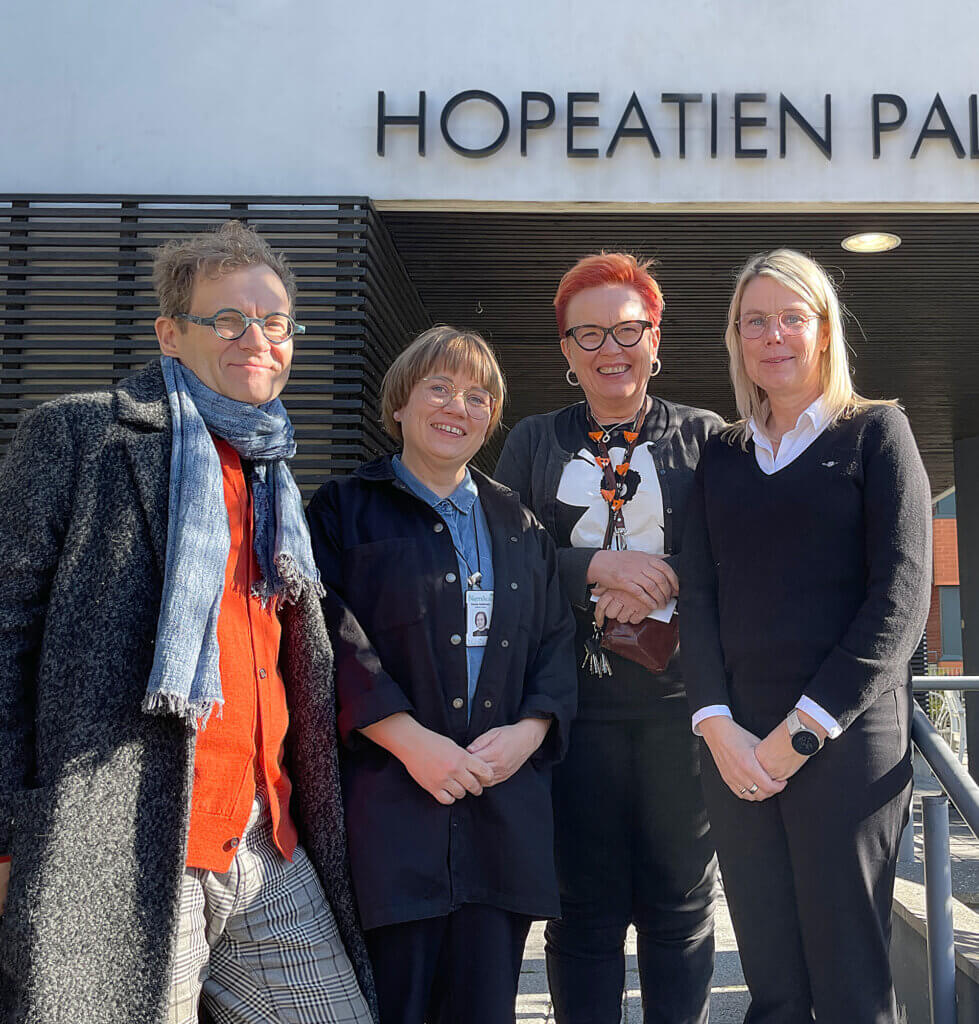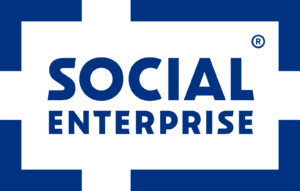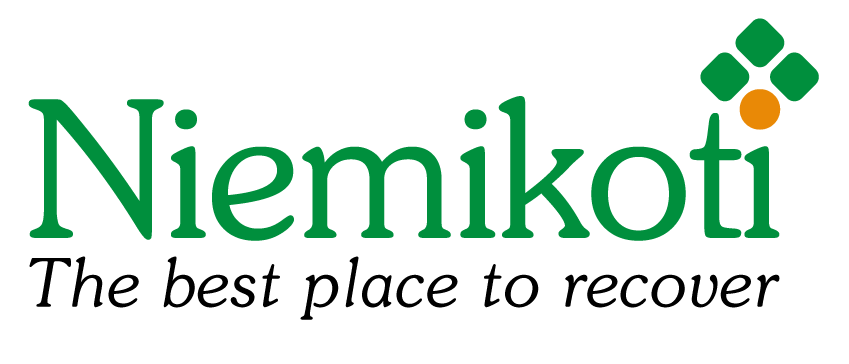Helsingin Seniorisäätiö (Helsinki Senior Foundation) has made employing people with partial work ability a part of everyday operations. Collaboration with Niemikotisäätiö’s Valtti Coaching has brought in contributors who complement teams and improve the flow of daily work.
“This doesn’t require rocket science from anyone. You agree on a clear task, provide orientation, and keep communication open,” summarizes Marika Metsähonkala, CEO of Helsingin Seniorisäätiö.
The meeting at Helsingin Seniorisäätiö on September 24, 2025, included:
- Marika Metsähonkala, CEO, Helsingin Seniorisäätiö
- Maria Laaksonen, Director of Cleaning Services Operations, Helsingin Seniorisäätiö
- Emma Heikkinen, Lead Instructor, Valtti Coaching / Niemikotisäätiö
- Pasi Tuominiemi, Job Coach, Valtti Coaching / Niemikotisäätiö

This is no longer a project – this is now everyday practice.
From the TEOS Project to Lasting Practices
The TEOS project (Työtä, tekijöitä ja osaamista ikääntyneiden palveluihin) was developed in collaboration with care sector and employment support organizations to find new ways to address the labor shortage in elderly care. As a result, low-threshold gig work opportunities were created and carried out via the Keikkaamo platform, for example at Antinkoti, part of Helsingin Seniorisäätiö.
Through Keikkaamo, service users from Valtti Valmennus participated in short-term shifts working with elderly people, engaging in activities such as games, dancing, and other interactive programs. At its best, even short-term work like this can open doors to employment or spark interest in studying for a career in care.
At the same time, Helsingin Seniorisäätiö allocated budget funds for gig work for the coming years, which is a concrete sign of long-term commitment in service planning.
When the Task Is Clear, the Worker Shines
In addition to gig shifts, Helsingin Seniorisäätiö has this year employed three service users from Valtti Valmennus in various fixed-term and part-time positions supported by wage subsidies.
Marja started in the laundry and quickly grew into a full member of the team. Her employment contract has been extended until the end of May 2026. “Work skills, initiative, and communication – everything has improved. Her cheerful morning greeting has become the laundry’s trademark,” says Laaksonen.
Jarkko worked a shorter summer stint in assisting kitchen duties before moving on to another job.
Ville will start in October at Pakilakoti in transport tasks (waste and laundry). A role has been tailored for him that frees up time for others to focus on actual care work.
“The most important thing is finding motivation or the right attitude. When the task is clearly defined, onboarding is done together, and the job coach provides support, the worker quickly becomes indispensable and things start to fall into place. The employee becomes part of the work community,” Maria Laaksonen explains.
Job Coaching Lowers the Threshold – In Both Directions
The job coach from Valtti Valmennus ensures sufficient support for the employee and maintains communication with the employer.
“For example, it’s important to monitor how well the tasks are managed, signs of strain, and any psychological symptoms as the work progresses. We stay in close contact and address issues early and openly. That way, problems can be prevented,” explains Pasi Tuominiemi.
The culture at Helsingin Seniorisäätiö supports this: doors are open, matters are handled face-to-face, and the ground rules are the same for everyone. Absences are always reported by phone, task changes are agreed upon together, and everyone is welcome to ask questions.
Diversity is our default setting.
Diversity Is Everyday Life – People with Partial Work Ability Fit Naturally Into It
Helsingin Seniorisäätiö employs a wide range of professionals from different linguistic and cultural backgrounds.
“If we stuck to just one ‘traditional’ operating model, our work wouldn’t function. Diversity is our default setting – people with partial work ability fit into it naturally,” says Marika Metsähonkala.
Everyday supervisory work is key: clear division of tasks, consistent routines, and friendly, direct communication work best. The job coach can support both the employee and the supervisor, for example in giving feedback.
Why Would “Hard Business” Companies Benefit Too?
Metsähonkala hopes the example will spread – also to the private sector.
“Large companies have the resources and the opportunity. It would be a humane act, but also a business-savvy decision: reputation strengthens and employee commitment grows,” she explains.
Tailored, well-defined tasks for people with partial work ability quickly generate added value. While onboarding may take time at first, once the “bottleneck” is removed, specialists can focus on their core expertise.
Changing Conditions – Collaboration Helps Overcome Barriers
Changes in the labor market and social benefit systems directly affect how viable part-time work is for individuals. For example, the removal of the earnings disregard in unemployment benefits has made short gig shifts or part-time work less financially worthwhile for some, even though such work might be the most suitable way to gradually re-enter working life in certain situations.
When the task is clearly defined
and communication is open,
the worker quickly becomes indispensable.
“In our coaching, this is reflected in the fact that our service users feel more secure about trying out work when they have a pension decision in place – it gives them the confidence to seize opportunities differently, knowing they can work in a way that suits them while respecting the income limits for pensioners. A partner and employer like Helsingin Seniorisäätiö meets many of our service users’ hopes and needs for an ideal workplace,” explains Emma Heikkinen.
How We Did It – And How You / Your Company / Your Community Can Start
- Start with gig shifts. Try 2–4 hour shifts with clearly defined tasks (e.g. laundry, dishwashing in the kitchen, basic cleaning routines, transport duties).
- Tailor the role. Write down responsibilities briefly and visibly at the workstation.
- Agree on ground rules. Absence notifications, shift changes, breaks – all agreed together and documented.
- Stay connected with coaching. Schedule check-in calls and assign a low-threshold contact person.
- Build on success. Extend contracts, increase hours, or teach a second task once the basic role is mastered.
“Good practices are born in everyday work – not in reports. That’s why we started with experimentation and stuck with what works,” Metsähonkala sums up.
Faktat
Organizations: Helsingin Seniorisäätiö & Niemikoti Foundation Valtti Valmennus
Käytännöt: Keikkavuorot Keikkaamon kautta, räätälöidyt osa-aikaiset työtehtävät (pesula, siivous, keittiö, kuljetukset), matala kynnys työvalmennukseen
Example tasks: Dishwashing, laundry logistics, basic cleaning, wiping kitchen tables, internal transport
Working time example: 18 hours per week (adjustable based on life situation and benefit limits)
Niemikoti Foundation, Valtti Valmennus: Individualized work and study coaching for Helsinki-based mental health recovery clients
Support for the service user:
The job coach supports the planning and implementation of education and employment paths, and provides help with coping at work and in studies. Coaching aims to help each individual find a path to working life or education that suits them.
Support for the employer:
The job coach can assist in the recruitment process when needed, for example with applying for wage subsidies, tailoring job roles, and onboarding the employee. The coach knows their clients well and can recommend suitable candidates for different tasks.

Niemikotisäätiö responsibly generates social value through long-term, non-profit mental health work.
By hiring or assigning tasks to a person with partial work ability, you support their social rehabilitation and opportunity for inclusion.
